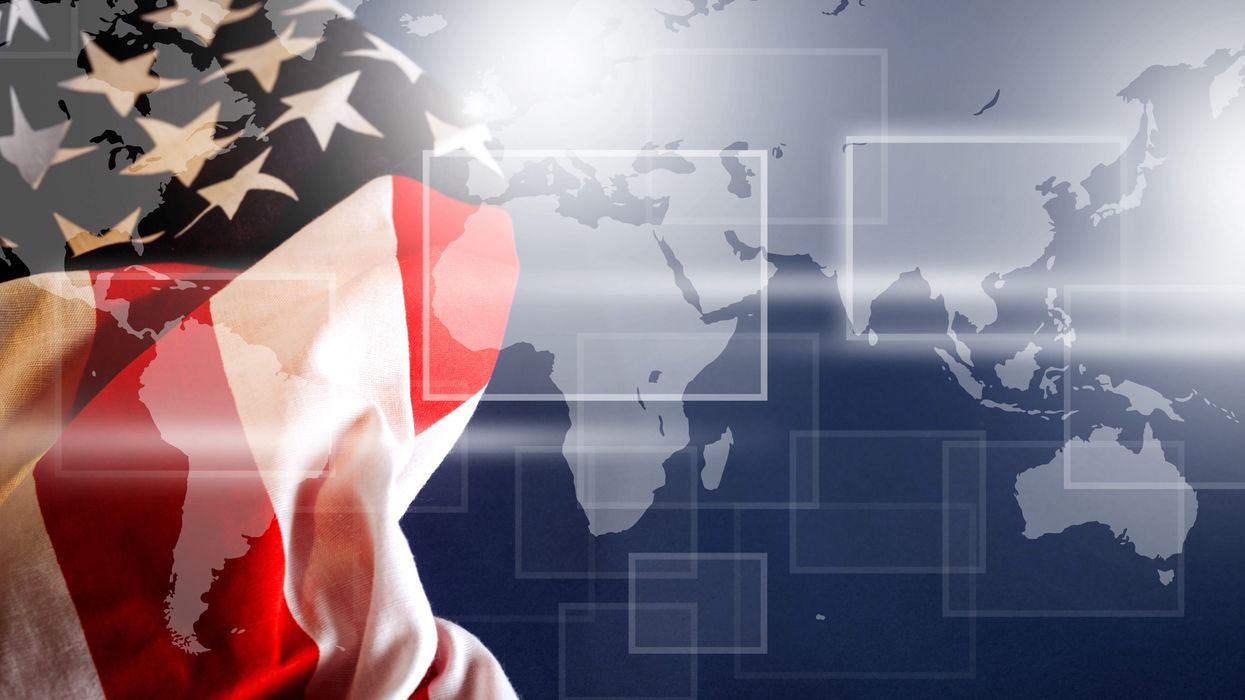Piccone is an advisor to the Club de Madrid, a forum of democratic former presidents and prime ministers from over 70 countries, and a nonresident senior fellow at the Brookings Institution. Tannon, a partners at DLA piper, is the board chair of the Club of Madrid Foundation.
The United States, as the world’s oldest and wealthiest democracy, continues to inspire people around the world who strive for greater freedom and prosperity. For that to continue, however, the United States must overcome its increasing polarization and dangerous slide toward populist nationalism.
As the American people face this pivotal election, we can revitalize the fundamental values of America’s founding — that all humans are born free and equal in dignity with inalienable rights to life, liberty and the pursuit of happiness. These are the same principles now reflected in constitutions and treaties across the planet. Unfortunately, some political candidates are behaving in ways that fall far from this ideal, stoking greater division and cynicism.
If voters fail the stress test up and down November’s ballot, democracy in the United States and around the world will suffer. Tyrants from Moscow to Tehran will rejoice.
Causes for concern
As they have for centuries, people fleeing repression and poverty flock to the United States in search of a better life. Indeed, the U.S. economy, powered by dynamic entrepreneurs, the rule of law, technological breakthroughs and an influx of ambitious immigrants continues to surprise experts with its resilience and strength.
Yet our high levels of inequality and discrimination, foundering educational systems, polarizing social media, and slow and expensive legal processes signal weakness and stagnation. Rather than forging consensus on tackling these issues, politicians and malicious foreign actors exploit these weaknesses.
The alarming levels of dysfunction within the U.S. political system are of even greater concern. The list of structural defects impairing the U.S. model is long, from partisan gerrymandering and election administration to thinly regulated torrents of campaign money to factional control of legislative processes, such as the filibuster. It is not surprising, therefore, to see the United States backsliding on multiple indicators of political rights and rule of law compared to other countries.
Beyond these longer-term challenges lies a more immediate problem — the rise of leaders determined to pursue campaigns of grievance and antagonism. The rhetoric often borders on encouraging violence, instead of offering creative solutions rooted in consensus building.
As the Jan. 6, 2021, insurrection revealed, America’s critical guardrails to protect against repeated attempts to undermine and disrupt constitutional norms and the rule of law are fragile or absent. Continuing to deny the outcome of a free and fair election after multiple failed legal attempts to challenge it is particularly grievous.
One can easily imagine the situation becoming worse, depending upon the outcome of November’s election and its aftermath. Some even promise the false virtues of a “strong man” above the rule of law, a conceivable prospect in light of the recent Supreme Court decision granting breathtaking immunity for “official” presidential acts and adding a presumption that all actions of a president are official. This is fundamentally dangerous to preserving the democratic principle that no one is above the law.
Americans of all stripes, and their leaders across our society, must determine how to confront such challenges. An awakened and educated citizenry, informed by independent media and aware of these historic choices, will be essential for American democracy to stabilize and reform.
The free world relies on America
As voters weigh their decisions, they should also consider the wider global context. Authoritarianism is on the rise in every global region and at its greatest height since the end of World War II. This movement is led by two countries dug into their own narrow agendas for regional and global superiority.
Vladimir Putin has made no secret of his ambition to recover the glory of “mother Russia” by attacking Ukraine, its sovereign and democratic neighbor. If Putin succeeds, other democratic neighbors of Russia would be his next targets.
In parallel, Xi Jinping seeks to protect his and the Chinese Communist Party’s grip on power at home, as well as reshape global institutions in the party’s image. Other autocrats cling to power by rigging elections, repressing the media or eliminating opponents, as in Belarus, North Korea, Syria, Iran and Venezuela. America’s calling should be to resist such authoritarian regimes and offer the world a viable democratic alternative.
In the face of hostility from neo-authoritarians, the contest for a rules-based international order demands a committed coalition of democratic states that includes a healthy and reliable United States. The world sought by the neo-authoritarians is one riddled with human rights abuses and impunity to repress and pilfer.
In contrast, the world built by democracies is more open, more cooperative, and more inclusive of diverse ideas and cultures. It is also founded on positive societal practices within borders, in which people are encouraged to create businesses, respect the law and pursue their dreams. In short, to live in dignity, peace and freedom, to solve problems rather than to perpetuate them
The continued progress of the American experiment in self-governance will be crucial to upholding the vision of a world in which rules matter and human rights are respected, where individuals are citizens and not manipulated subjects. Without America’s political, economic and military power — and the inspiration of its example — other democracies around the world will struggle to stave off authoritarian challenges.



















